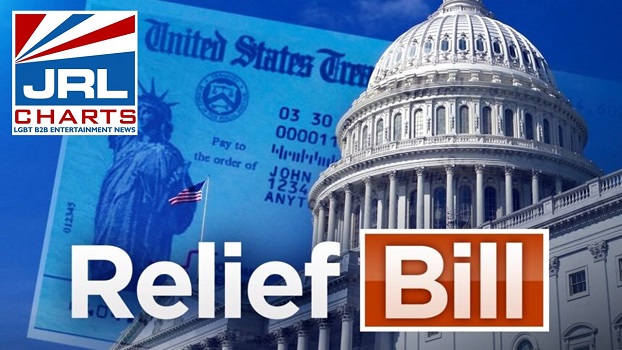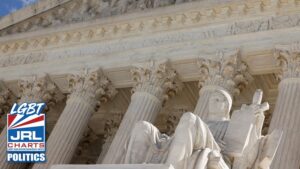WASHINGTON D.C. — (12-21-20) — Congress has released to the press the long-awaited details of the agreed upon $900 billion Coronavirus Relief Bill after coming to an agreement late Sunday. The bill is expected to be passed by Congress today and signed into law by President Trump.
Funds allocated for the Coronavirus Relief package will be combined with a $1.4 trillion measure to fund federal agencies through the end of September and a package extending expiring tax provisions.
When Congress approves the legislation it will have appropriated more than $4 trillion to respond to the coronavirus pandemic that has caused the infection of 76,895,589 Americans and has taken the lives of over 317,680 Americans since January.
Details for the $900 Billion Dollar COVID-19 Relief Bill:
Stimulus Checks:
The payments will be up to $600 per adult and per child. The amount per adult is half the $1,200 payments that were provided under the CARES Act enacted in March, but the amount per child is slightly larger than the $500 allowed under that law.
The bill will allow U.S. citizens who are in households that also include non-citizens to receive the payments. With the first round of payments, U.S. citizens married to people who do not have work-eligible Social Security numbers generally could not receive a payment if the couple filed a joint return.
You can thank progressive Sen. Bernie Sanders (I-Vt.), GOP Senator Josh Hawley (R-Mo.) and the White House for pushing to for more relief checks to be included in the bill.
Unemployment benefits:
Two expiring CARES Act programs, Pandemic Unemployment Assistance, which made benefits available to the self-employed and gig economy workers, and Pandemic Emergency Unemployment Compensation, which provided additional weeks of benefits, were extended for 11 weeks, averting a fiscal crisis for millions of Americans.
That timeline will set another key deadline to stop the programs from expiring in early March. In addition, Congress will add $300 to all weekly unemployment benefits, half the amount that supplemented benefits from April through July. Workers who rely on multiple jobs and have lost income will also be eligible for a weekly $100 boost as well.
Support for small businesses:
Businesses that already received a PPP loan will be eligible to get a second one under the new terms. Some of the PPP funds will be set aside for the smallest businesses and community-based lenders.
The deal provides $9 billion in emergency Treasury capital investments for Community Development Financial Institutions (CDFIs) and Minority Depository Institutions (MDIs), financial institutions that largely cater to minorities, as well as an additional $3 billion for CDFIs through a Treasury fund. It also provides $20 billion in Economic Injury Disaster Loans (EIDL) grants for smaller businesses.
Additionally, it includes $15 billion in grants dedicated to live venues.
Housing assistance:
The bill extends the eviction moratorium that is set to expire on December 31, 2020, will be extended through the end of January 2021.
The legislation includes $25 billion for rental assistance to families facing eviction. It’s the same amount proposed by a compromise $908 billion relief proposal introduced by the bipartisan Problem Solvers Caucus in early December.
Eligible renters would be able to receive assistance with rent and utility payments, and bills that have accumulated since the start of the pandemic, by applying with entities that state and local grantees chose to administer the program.
Additionally, the bill includes an enhancement of the Low Income Housing Tax Credit to increase the supply for affordable housing construction.
Education:
The bill includes several provisions relating to elementary, secondary and higher education. It would provide $82 billion of funds for schools and colleges to help them reopen classrooms and prevent virus transmission.
It also includes an expansion of Pell Grants. A summary from Senate Minority Leader Charles Schumer (D-N.Y.) and House Speaker Nancy Pelosi (D-Calif.) said that the expansion would allow 500,000 people to become new recipients of the grants and 1.5 million students to get the maximum benefit.
Coronavirus Testing:
The agreement includes $20 billion for the purchase of vaccines, $8 billion for vaccine distribution, $20 billion for states to conduct testing and $20 billion in extra federal relief for health-care providers.
Federal Reserve:
Sen. Pat Toomey (R-Pa.) and Minority Leader Charles Schumer (D-N.Y.) agreed to language in the bill to end the expansion of the Federal Reserve’s lending authority, which Congress enacted through the CARES Act in March.
The new language specifically will close four Fed lending facilities: the Primary Market Corporate Credit Facility, the Secondary Market Corporate Credit Facility, the Main Street Lending Program and the Municipal Credit Facility. Unspent funding for those programs under the CARES Act will be repurposed.
Nutrition Assistance:
The deal directs $13 billion to Supplemental Nutrition Assistance Program (SNAP, formerly known as food stamps), and to child nutrition benefits, the same amount set by the Problem Solvers Caucus earlier this month to pay for a 15 percent increase in SNAP benefits.
The SNAP language does not expand eligibility for the program and requires the secretary of Agriculture to provide reports on participation rates and unspent funding balances.
Transportation:
Negotiators provided $45 billion for transportation, including $16 billion for another round of support for airlines, airline employees and contractors, $14 billion for transit systems, $10 billion for highways, $2 billion for intercity buses, $2 billion for airports and $1 billion for Amtrak.
Schumer, speaking on the Senate floor, said the money would keep New York’s Metropolitan Transit Authority running.
Surprise medical bills:
The legislation includes provisions to end the practice of surprise medical billing. It would hold patients harmless from surprise bills, including from air ambulance providers and prohibit out-of-network providers from “balance billing” unless they give patients 72-hour notice of their network status and an estimate of the charges.
If every goes as planned, Americans should start to see assistance arriving before the end of the year.
Article by: Paul Goldberg, Staff Writer
Sign Up Below for #JRLCHARTS Breaking News and Follow @JRLCHARTS Daily on Twitter
- Todrick Hall (DANCE IV LIFE) Official Music Video - April 23, 2024
- Orion ships 2 New Ergonomic Dual Vibrators from Sweet Smile - April 23, 2024
- Falcon|NakedSword Hosts ‘Desert Moon’ Screening at CCBC - April 23, 2024







